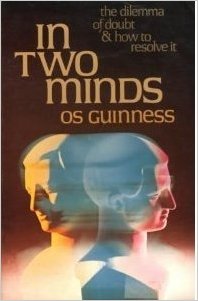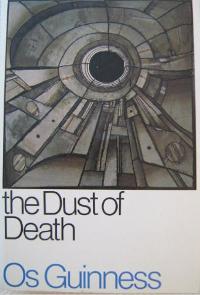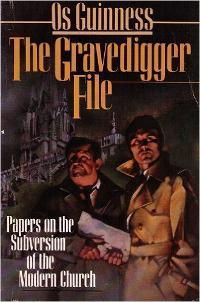Jeg skrev nettopp om en bok jeg har kjøpt av Os Guinness. Her er tre viktige bøker jeg leste av samme forfatter mellom 1975 og 1985:

Boka In Two Minds kom ut i 1976, og jeg fikk tak i den ganske raskt og leste den med stor interesse. Boka handler om hva man gjør når man begynner åtvile – på den kristne tro, eller andre ting – man flykter ikke fra tvilen,og undertrykker den ikke. Man bør møte tvilen med åpne øyne, finne informasjon, be om råd- for å finne ut hva somer sant. Amazon skriver bl.a. dette om boka:
The author describes the purpose of his book: «Well, I myself didn’t have a lot of the doubts described in the book, but I met so many people who were either ashamed, embarrassed, or felt guilty about doubting. And I wanted to relieve them of that. Doubt is not the same as unbelief. You have faith in Christ, which is sure of Christ, and you have unbelief which, sadly, is not sure of Christ. And doubt is a halfway house. And all the languages of the world as well as the Scriptures had this idea of doubt in two minds. So like a coin spinning it will come down heads or tails. It has got to be resolved, but you don’t need to feel bad about doubt. You just need to resolve it.» – «We do not trust God because he guides us; we trust and then are guided, which means that we can trust God even when we do not see guided by him. Faith may be in the dark about guidance, but it is never in the dark about God» (p. 261). In fact, «God proves not only better to us than our worst fears but better to us than our wildest dreams» (p. 184). In fact, how we handle doubt is largely a reflection of the health of our faith because «since the object of Christian faith is God, to believe or disbelieve is everything. Thus the market value of doubt for the Christian is extremely high. Find out how seriously a believer takes his doubts and you have the index of how seriously he takes his faith» (p. 31).
 Boka The Dust of Death leste jeg på slutten av 70-tallet, og den gir en god oversikt over alle religionene og -ismene som hadde kommet til vesten på 60-tallet. Amazon skriver bl.a. slik om boka:
Boka The Dust of Death leste jeg på slutten av 70-tallet, og den gir en god oversikt over alle religionene og -ismene som hadde kommet til vesten på 60-tallet. Amazon skriver bl.a. slik om boka:
In the immediate aftermath of the 1960s, Guinness writes in the Preface that «what we were witnessing … was the gradual disillusionment of a generation, even of a culture. Ideals had grown so distant they were barely distinguishable from illusions. … In more than one hundred sections (!) with provocative chapter titles such as «The Striptease of Humanism,» «The Twilight of Western Thought,» «The Importance of Futurology,» «The Angry Young Men,» «The Psychedelics and God,» and «Constructive Christian Radicalism,» Guinness attempts a wide-ranging analysis of modern culture, proposing in the end Christianity: «this uniquely ‘impossible’ faith—with a God who is, with an Incarnation that is earthly and historical, with a salvation that is at cross-purposes with human nature, with a Resurrection that blasts apart the finality of death—is able to provide an alternative to the sifting, settling dust of death and through a new birth open the way to new life.»
 Boka The Gravedigger File var kanskje ikke så viktig for meg, men den peker på en del problemer som den moderne kristenheten har. Amazon skriver bl.a. slik om den:
Boka The Gravedigger File var kanskje ikke så viktig for meg, men den peker på en del problemer som den moderne kristenheten har. Amazon skriver bl.a. slik om den:
Os Guinness, in this work, presents the Church in America and the problems that beset it. All written in a series of communiques from the enemy «Directorate.» It has the same feel of The Screwtape Letters, and a fascinating idea of the way of the «Third Fool» as being the way to break through the present-day irrelevance, bickering, factionalism, marketing, and paranoia that are strangling the lifeblood out of the Church in America.
